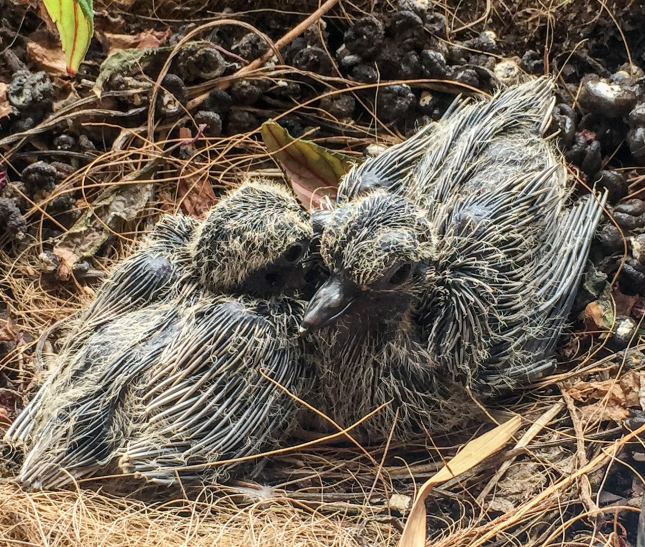Orphaned Bird Care
Please DO NOT bring orphaned or injured birds to WBU. We no longer have a bird rehabilitator here, so we cannot accept birds at our location. Call or email the contact below for assistance.
Located in Georgia, Orphaned Bird Care was established in 2002.
It is operated by volunteers and donations from the public. Visit http://www.orphanedbirdcare.com
Did you find an orphaned or injured bird?
Please contact the Rehabilitator for advice:
Phone: (912) 598-9825
Email: [email protected]
About Baby Birds
They come in two categories, nestlings and fledglings. If you find a nestling (naked or partially feathered) gently warm it in your hands.
If it is not injured, try to locate the nest overhead, or nearby. If you can't find the nest, make a "foster nest" from a berry basket, hanging planter or plastic container punctured with holes.
Line with dry grass, pine straw, or leaves. Hang the new nest from a limb; secure it in the "V" of a tree, or in a bush or shrub.
Gently place the warmed baby into its foster home.
Place it where the mother can see it. Watch for the parents to return. Keep predators away and keep watch for several hours, if possible.
If the parents do not return, bring the baby indoors and see "How to Help a Baby Bird" below.
How to Help a Baby Bird
Place tissue nest in a small box with air holes
Keep the bird warm, half-on and half-off, a heating pad or hot pack.
Keep the bird away from people or pets.
NEVER FEED BREAD OR MILK. Birds are unable to digest them.
NEVER GIVE WATER BY EYEDROPPER. That may cause pneumonia. Use a small paintbrush, as from a child's watercolor set. Wet it and touch it to the beak.
Temporary Diet (2 days maximum)
1 cup canned moist dog or cat food (chicken or beef); blend well with: 1 hard-cooked egg yolk
Emergency Feeding
Young birds need to be fed every 20 minutes.
Feed tiny pieces of the above diet from the child's paintbrush.
Wait for the bird to swallow, follow by brushing beak with water.
Did You Know?
Baby birds need protection from dogs and cats. Domestic cats are not part of the natural ecology. Millions of baby birds are killed each year by uncontrolled animals.
Fully feathered baby birds with short tails hopping around on the ground should be left alone. These are fledglings. Don't be a BIRDNAPPER!
Birds need to be rescued only if they are injured, have been caught by a cat, cold, naked, or have been abandoned by both parents.
Parent birds will search for their babies even after a day of absence. (Parent birds will feed their babies after you have touched them.)
Keeping a native wild bird is against the law if you do not have a permit - even if you plan to release it. Not to mention, there is nearly a 100% fatality rate among orphaned/injured birds that are cared for by non-licensed rehabbers.


